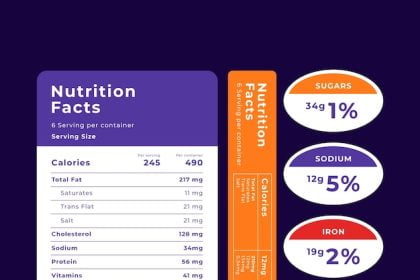
It’s natural for anyone to look for quick hacks to lose weight. However, it’s essential for us to remember that good things take time to happen. The process of weight loss has to be healthy and systematic. Along with exercise and yoga, there also needs to be a detailed diet plan to lose weight, curated by a nutritionist. Your diet plan should include all the necessary nutrients like protein, vitamins, minerals, calcium, iron, etc.
Along with a diet plan and physical activity, weight loss also depends on many healthy lifestyle patterns like limiting screen time, getting adequate sleep, and drinking at least 4 litres of water daily. However, even with a modest weight loss of 5-10% of your whole body, there will be visible improvements, like less tiredness, blood pressure, blood sugar, and cholesterol.
Contents
There are six several types of diet plans:
The Paleo Diet: This is a natural way of eating that excludes most sugar intake except for fruits. However, sugary products are not the only stipulation; there is also a strict restriction on processed foods and grains. In addition, because of lower carb intake, your body starts using fat as a fuel. The Paleo diet includes fish, fowl, vegetables, fruits, nuts, oils, sweet potatoes, eggs and meat, as long as that meat is not grain-fed.
The Blood Type Diet: The Blood type diet tries to match people with their everyday dietary needs based on their blood type. For example, people with an O+ blood group is recommended to eat protein-enriched food. On the other hand, people with the A+ blood group are suggested to avoid meat and emphasize turkey, tofu, and fruit. At the same time, weight loss is contingent on eating a diet that consists primarily of soy, seafood and vegetables.
The Vegan Diet: This kind of diet excludes not only meat, chicken or egg but also any product that includes animal organs, skin, or flesh, and even dairy products. This diet mainly includes healthy salad bowls and reduces cholesterol and saturated fat intake. A vegan diet has to be adequately planned by a specialist to show visible improvements. However, a vegan diet can minimize their overall risk of coronary heart disease, obesity and high blood pressure.
The South Beach Diet: This diet was first introduced in 2003. Certain carbohydrates have to be avoided entirely. It aims to educate dieters on which carbs to avoid. The diet includes a selection of healthy fats, lean protein, and good carbs.
The Mediterranean Diet: This is a vegetable-heavy diet that excludes a lot of meat intake, especially red meat. This kind of diet includes a selection of healthy fats, lean protein, and good carbs. This kind of diet helps with depression, in addition to controlling blood sugar levels and weight loss.
Raw Food Diet: This diet includes eating uncooked or unprocessed food. This kind of diet excludes any pasteurized food or foods that are produced with any type of additives. This diet is curated to increase energy and decrease inflammation.
10 foods to include weight loss diet plan:
Whole eggs:
Eggs are incredibly nutrient-dense. Interestingly, almost all its nutrients are found in the yolks, like choline and vitamin D. Though egg whites deliver 4–6 grams of protein each. Because they are high in protein and fat, they help you feel full. It is recommended to eat 2–3 whole eggs daily.
Leafy vegetables:
Leafy greens include kale, spinach, collard greens, and others. They boast an assortment of fibre and micronutrients and are almost always a great addition to your diet. In addition, learning to respond to your body’s internal hunger and fullness cues can aid your larger healthy weight loss goals.
Salmon:
Salmon is a fish that contains high-quality protein, healthy fats and various essential nutrients. That combination keeps you satiated and can help you reach a healthier weight. In addition, salmon is loaded with omega-3 fatty acids, which may help reduce inflammation in your body. Inflammation plays a significant role in obesity and metabolic disease.
Lean and poultry meats:
A serving of lean meat from skinless chicken breast or lean cuts of red meat like tenderloin or flank steak provides protein and iron. Leaner meats support weight management and heart health since research suggests that saturated fat may increase inflammation associated with chronic illness. Enjoy these servings most of the time to help protect your heart.
Potatoes and root vegetables:
High in potassium, a nutrient often lacking in the modern diet, potatoes are surprisingly high in protein. A well-rounded food contains many essential nutrients such as vitamin C and B6, manganese, phosphorus, niacin, and pantothenic acid. Versatile and easy to include in almost any meal, potatoes are a great staple of any healthy diet plan.
Soups:
Try to select broth-based soups that contain low sodium and little to no saturated fat. Vegetables and whole grains provide essential nutrients such as folate and magnesium and are a great way to increase your intake of these nutrients throughout the day. Try adding chickpeas or adding chicken or lean meats back into your soup recipe for added protein. If a soup is too skimpy for your liking, blend in avocado or cashews for a creamy base without using heavy cream.
Cottage Cheese:
Dairy products tend to be high in protein. One of the most protein-rich dairy products is cottage cheese, mostly protein. Eating cottage cheese is a great way to boost your protein intake, essential for building and maintaining muscle. It’s also very satiating and high in calcium.
Avocados:
Avocados are unique fruits because they are high in healthy fats instead of carbs. Despite being mostly fat, avocados also have a lot of water and fibre, making them very satiating. In addition, they contain many essential nutrients, including fibre and potassium. It’s worth keeping in mind that avocados are energy-dense, so taking portions into account is necessary when weight loss is your goal.
Nuts:
Unsalted nuts make a healthy snack. They are high in fat and calories but provide you with many long-term health benefits. Try eating a handful of unsalted nuts first, and see how you feel after about 15–20 minutes. Then, if you still feel hungry, try half of another handful and give yourself some time to digest.
Greek Yoghurt:
Yoghurt is another excellent dairy product. Greek yoghurt is especially great for weight management, as it has twice the amount of protein as regular yoghurt. In addition, Greek yoghurt contains probiotic bacteria that can improve the function of your gut. Look for labels that include the language “live cultures” or “active cultures” for an added gut health boost. Also, consider choosing full-fat yoghurt.



